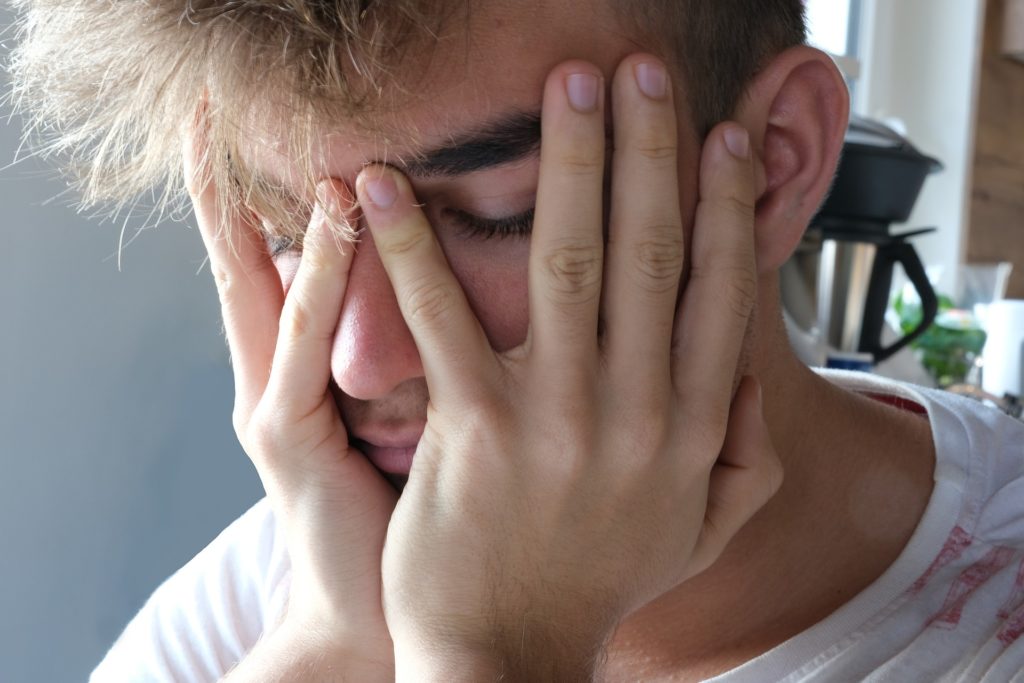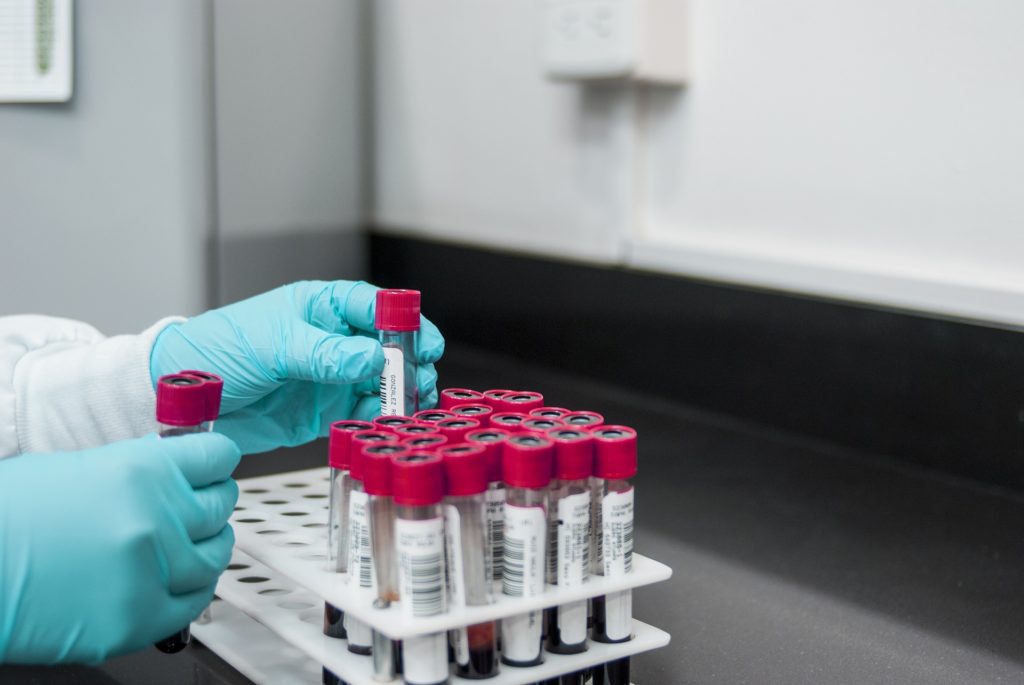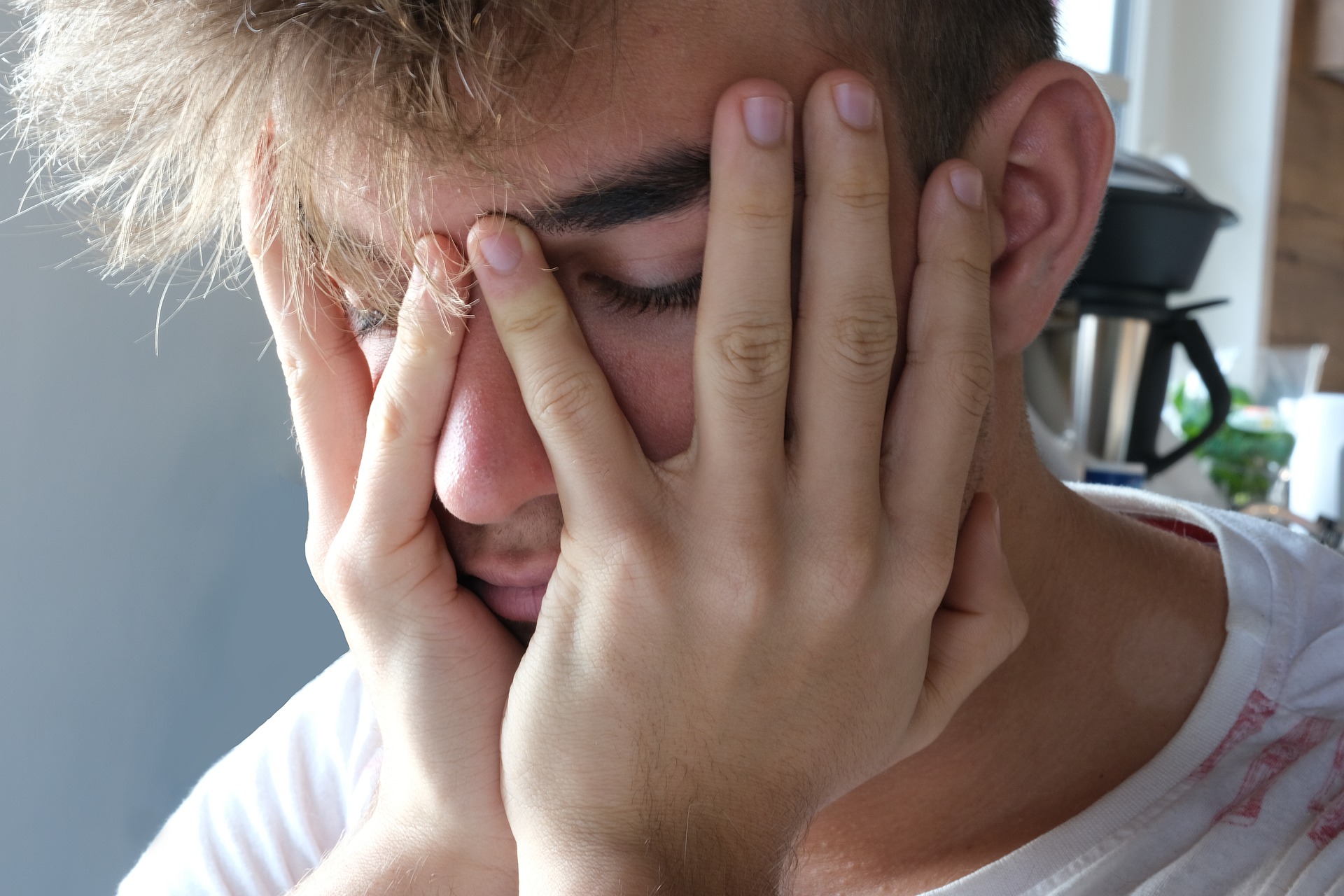Causes of Anxiety That Are in Your Head
The mental health struggle is real and there are many causes of anxiety. Particularly when you live in the modern world when things can change drastically.
If you’re attempting to navigate the world while lugging around a heavy weight of anxiety, you’re for sure not alone.
The good and bad news is that anxiety has many, many potential causes. Some brain based, others body based. Working with a counselor (like Dan, Mandy, or Mary here at Ancora) helps with many of the brain based issues. We can help you identify cognitive distortions, habitual thoughts and rumination, and coping strategies to make it through life day-by-day.
Working with a medical provider (like Dr. Katherine) on medication management is another way to target the brain based causes of anxiety. Namely, bringing the chemical chaos swirling through the nervous system into balance.

And yet, there are still other causes of anxiety that are entirely physically based. These are the ‘low hanging fruit’ in the world of integrative mental health, issues that we can see fairly clearly and address with relatively simple fixes. These causes of anxiety aren’t in your head.
By the end of this article you’ll have a handle on the role your body may be playing in your mental health.
Anxiety and Thyroid Function
Oh, the thyroid. This gland sits right at the front of your neck, and is generally considered the ruler of metabolic processes throughout the body.
When thyroid levels are low (hypothyroidism), we see symptoms like depression, sleepiness, low energy, poor concentration, weight gain, constipation and more.
On the other side, when thyroid levels are high (hyperthyroidism) anxiety levels are amped up. Racing heart, irritability, heart palpitations, and poor sleep may also show up.
Only a blood test can definitively say what your thyroid levels are. But, if they’re indeed out of balance, the fix is usually fairly simple and consists of supportive nutrition and thyroid medication.

Blood Sugar Imbalance
The body does its best to maintain blood sugar levels in a relatively narrow range, ideally somewhere between 65 and 120 mg/dL. However, because of a food supply rich in processed foods with all manner of added sugar (high fructose corn syrup, anyone?) it’s not uncommon to see blood sugar levels above 200 mg/dL after a meal. Or even fasting, in the case of poorly controlled type 2 diabetes.
If you’ve ever seen kids at a birthday party after cake, you’ve seen this. Or perhaps you’ve experienced a sugar rush or two yourself. You understand why elevated blood sugar can contribute to anxiety. Sugar is energy, most simply. The body wants to make use of all that energy ASAP or get it stored away to minimize toxicity to the cells of the body. If you don’t happen to have the luxury of running around at recess, the elevated heart rate and racing thoughts feel just like an anxiety attack.

It’s never just high blood sugar to be aware of, but also lows in blood sugar. Blood glucose can hit lows for several reasons:
- Fasting for long periods of time
- Eating foods with a high glycemic index, causing an overcompensation in the body to clear the excess glucose, which in turn causes a crash
- Overestimating a dose insulin in the case of either type 1 or type 2 diabetes
- Some medications
The telltale signs of low blood sugar sound a lot like a panic attack: racing heart, sweating, nausea, shaking hands.
To keep your blood sugar in the optimal range, focus on getting a wide variety of whole foods, rich in protein and fiber. Fruits, vegetables, whole grains, legumes, and animal proteins help you to feel fuller for longer, and keep your blood sugar happily in the optimal range.
Of course, if you’re overwhelmed by the array of dietary advice out there, make an appointment ASAP to see Niki Carr, our nutritionist on staff.
Hormonal Imbalance as a Cause for Anxiety
A common symptom of premenstrual syndrome is a hike in anxiety. While this walks the line between body and brain based causes of anxiety, it is one that can be addressed from the “bottom up”. This is done by working with the body.
The drop in estrogen right before the menstrual period in some women trigger a drop in serotonin. Enter carb cravings (which is the body’s attempt to restore levels of this feel good chemical) and anxiety. Incidentally, this is also the theory of why folks with uteruses tend to experience chronic and cyclic migraines at a rate much higher than those without.
While everyone is different, balancing hormone levels throughout the month is an excellent way to minimize premenstrual anxiety. Eating 1-2 tbsp of flax daily helps to balance hormone levels. There’s some talk throughout the internet of flax increasing estrogen, which is likely untrue. Rather, it helps to reduce overall inflammation throughout the body and, because of a hefty fiber content, helps the body eliminate excess hormone throughout the month. This makes the pre-menstrual estrogen drop slightly less steep and thereby reducing symptoms… at least, that’s Dr. Katherine’s theory.
Of course, depending on the severity of premenstrual symptoms, medication is sometimes warranted. Talk with a qualified medical professional if you’re experiencing severe premenstrual symptoms.
Caffeine and Stimulant Medications
Coffee, tea, energy drinks – so many of us rely on these to get through our day. And while everything has a time and place, excessive caffeine can cause anxiety.
If you’ve ever gone a cuppa too far, you know the feeling. You were pleasantly awake and focused. Now, you’re trying to get your heart to slow down a few beats . Maybe you can’t seem to keep your mind on any one thing for more than a few seconds.

Not only do these beloved beverages have caffeine, but so too do many supplements, particularly those geared towards weight loss or improved cognitive function.
Some stimulant medications have this same effect.
If you’re experiencing anxiety, a good first step is to cut back (or stop completely) on caffeine intake.
Depending on how much you usually imbibe, beware the caffeine headache. A gradual decrease is often far more pleasant and doable than going cold-turkey.
Alcohol and Anxiety
All the fun things seem to cause issues, no? Ah well.
At any rate, steady alcohol consumption can do a number on your mood and mental health. A few considerations are at play when it comes to alcohol use and anxiety.
First, is the fact that alcohol is toxic to the human body. Your liver must work overtime to clear it out to minimize damage. This takes quite a bit of metabolic resource (read: vitamins and minerals) that are also used for the processes in your brain, keeping your neurochemistry humming along. The liver will take priority here, simply because of the toxicity level of alcohol.

Meanwhile, drinking alcohol causes an increase in heart rate, which, of course, feels a lot like anxiety. You may not notice this while you’re drinking. Later in the early morning hours and over the next few days, your heart rate may sustain an increased rate.
Finally (for our brief purposes here) alcohol does a number on blood sugar levels, spiking them and then resulting in low blood sugar. See above for more on that.
Your best bet – not just for anxiety, but for your general health – is to minimize alcohol consumption.
Conclusion of Causes of Anxiety
This isn’t a comprehensive list, but a good starting point for the more common organic, or body-based causes of anxiety symptoms.
Wherever you’re at, we at Ancora Wellness are here for you. Whether you could do with some counseling to help get your mind right, nutrition support to make sure you’re feeding your body what it needs, acupuncture to get your meridians running smoothly, or naturopathic care to keep your body and mind in balance, we’ve got you covered!
Simply call or head to the online portal to schedule a consultation!




